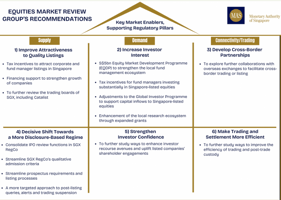What MOM’s Data Says About Local vs. Foreign PMET Jobs in Singapore
The Ministry of Manpower (MOM) released its 2024 labour market data in March 2025, shedding light on the evolving dynamics between local and foreign PMET (Professionals, Managers, Executives, and Technicians) employment in Singapore.
The report highlights significant trends in job vacancies, hiring practices, and the balance between local and foreign talent.
For Singaporeans, this data provides critical insights into the opportunities and challenges within the PMET job market and underscores the importance of staying competitive in an increasingly skills-driven economy.
Here’s a detailed analysis of what the data reveals and what it means for Singaporeans.
Key Highlights from MOM’s 2024 Data
-
Rising Demand for PMET Roles:
- PMET vacancies accounted for 57.7% of total job openings in 2024, up from 57.2% in 2023. Over the past decade, PMET roles have grown significantly, rising from 43.4% in 2014 to their current level.
- High demand for PMETs was observed in sectors like:
- Information & Communications (15.0%)
- Financial & Insurance Services (10.4%)
- Professional Services (10.2%)
-
Growth in Resident PMET Employment:
-
Between 2014 and 2024, resident PMET employment increased by 227,500, compared to an increase of just 22,100 EP/S Pass holders in growth sectors.
This indicates that most PMET jobs in these high-demand industries are being filled by locals, reflecting the government’s efforts to prioritise Singaporean workers.

-
-
Top PMET Roles in Demand:
- The most sought-after PMET roles include:
- Software, web, and multimedia developers
- Computer network, infrastructure, and platform professionals
- Financial and investment advisers
- These roles require specialised skills, making them both lucrative and challenging to fill.
- The most sought-after PMET roles include:
-
Hard-to-Fill PMET Vacancies:
- Despite the overall growth in PMET opportunities, certain roles remain difficult to fill due to a lack of specialised skills, unattractive pay, or insufficient relevant experience.
- Examples include financial/investment advisers, teaching/training professionals, and software developers.
Job Vacancy and Hiring Trends

The MOM’s data also reveals important trends in job vacancies and hiring practices:
- Newly Created Positions:
- In 2024, 45.7% of job vacancies were newly created positions, slightly down from 47.3% in 2023 but still above pre-pandemic levels.
- The majority of these new roles were driven by business expansion in existing or new functions.
- The Information & Communications sector had the highest proportion of new positions at 75.1%, reflecting the rapid growth of the tech industry.
- Decline in Non-PMET Vacancies:
- Sectors like Retail Trade and Food & Beverage Services saw declines in newly created non-PMET job vacancies. This trend highlights the ongoing shift toward higher-skilled roles in Singapore’s economy.
Hard-to-Fill Vacancies
-png.png?width=2802&height=1657&name=_-%20visual%20selection%20(3)-png.png)
A significant portion of job vacancies remains unfilled for extended periods, particularly in labor-intensive sectors:
- Non-PMET Vacancies:
- 19.4% of all vacancies in 2024 were unfilled for at least six months, down from 23.5% in 2023 and 41.4% in 2014.
- The decline in hard-to-fill vacancies was primarily observed in non-PMET roles, which dropped from 54.2% in 2014 to 27.2% in 2024.
- Labour-intensive sectors like Administrative & Support Services (19.5%), Food & Beverage (11.5%), and Accommodation (8.8%) dominate long-term non-PMET vacancies.
- Reasons for Hard-to-Fill Non-PMET Roles:
- Physically strenuous work, long or unsociable hours, and unattractive pay are the main barriers to filling these positions. Common examples include waiters, shop sales assistants, cleaners, bus drivers, and receptionists.
- Hard-to-Fill PMET Roles:
- While fewer PMET roles remain unfilled compared to non-PMET roles, certain positions continue to pose challenges. These include:
- Financial and investment advisers
- Teaching and training professionals
- Registered nurses
- Software, web, and multimedia developers
- The primary reasons cited are a lack of specialised skills, unattractive pay, and insufficient relevant experience.
- While fewer PMET roles remain unfilled compared to non-PMET roles, certain positions continue to pose challenges. These include:
Skills-Based and Qualification Trends
One of the most notable shifts in Singapore’s labour market is the growing emphasis on skills-based hiring over academic qualifications:
| Key Insight | Details |
|---|---|
| 1. Decline in Academic Qualifications as a Criterion |
|
| 2. Willingness to Consider Lower Qualifications |
|
This shift toward skills-based hiring is a positive development for Singaporeans, as it opens doors to PMET roles based on demonstrated abilities rather than formal credentials.
Labour Market Efficiency
The MOM’s data also highlights improvements in job matching efficiency:
| Key Insight | Details |
|---|---|
| 1. Beveridge Curve Analysis |
|
| 2. Job Seeker-to-Vacancy Ratio |
|
These trends reflect a favorable labor market for Singaporeans, with ample opportunities for those who are prepared and adaptable.
What Does It Mean for Singaporeans?
The MOM’s 2024 data has several implications for Singaporeans navigating the PMET job market:
- Growth in Resident PMET Employment:
- The significant increase in resident PMET employment demonstrates the government’s commitment to prioritising local talent in high-growth sectors. For Singaporeans, this means more opportunities in industries like Information & Communications, Financial Services, and Professional Services.
- Focus on High-Skilled Roles:
- The top PMET roles in demand, such as software developers, financial advisers, and IT professionals, require specialised skills. Singaporeans must invest in upskilling and continuous learning to remain competitive in these fields.
- Skills-Based Hiring Trends:
- The shift toward skills-based hiring presents an opportunity for Singaporeans to enter PMET roles without traditional qualifications.
- By focusing on acquiring relevant experience and demonstrating abilities, individuals can secure well-paying jobs in burgeoning sectors.
- Challenges in Hard-to-Fill PMET Roles:
- Despite the overall growth in PMET opportunities, certain roles remain difficult to fill due to skill gaps or unattractive pay.
- Addressing these challenges through professional development and negotiation will be critical for securing these high-demand positions.
- Balancing Local and Foreign Talent:
- While the majority of PMET jobs are filled by locals, the continued presence of foreign PMETs in niche areas highlights the need for Singaporeans to remain competitive in the global talent pool.
- Policymakers and employers must strike a balance between attracting international expertise and ensuring ample opportunities for local talent.
- Job Security Amid Economic Shifts:
- Improved job matching efficiency signals better alignment between job seekers and vacancies.
- With 1.64 job vacancies per job seeker in December 2024, Singaporeans enjoy a favorable job market, but staying adaptable and future-ready will ensure sustained employability in an ever-evolving economy.
Bottom Line
The MOM’s 2024 data paints a promising picture for Singaporeans in the PMET job market. The rise in resident PMET employment, coupled with a growing emphasis on skills-based hiring, underscores the opportunities available to locals in high-demand sectors.
However, the persistence of hard-to-fill roles and the need for specialised skills highlight the importance of continuous learning and adaptability.
By leveraging government initiatives, investing in upskilling, and embracing emerging opportunities, Singaporeans can position themselves at the forefront of the nation’s economic transformation.
References
Job Vacancies 2024, Manpower Research and Statistics Department, Ministry of Manpower, Singapore, March 2025.
Official: https://stats.mom.gov.sg
Let us know what you think about this topic, and what do you want to hear next.
You can now be our community contributor and make a pitch to have your favourite personality be on our show.
Join our community group and drop us your insights on this topic.

-Jun-01-2025-06-24-42-9139-PM.png?width=50&name=Square%20(2)-Jun-01-2025-06-24-42-9139-PM.png)








Let us know what you think of this post